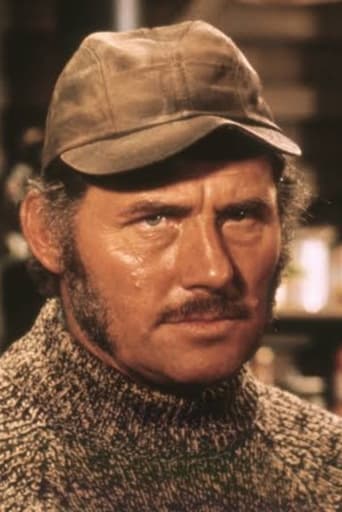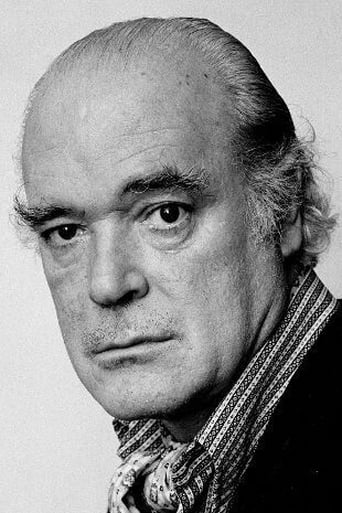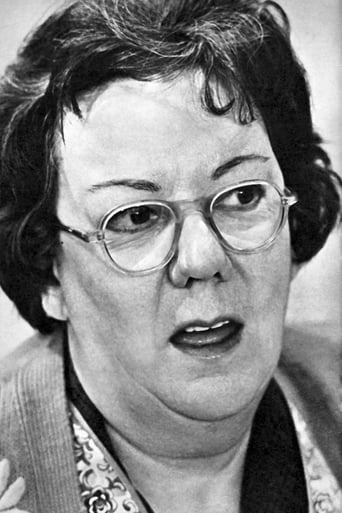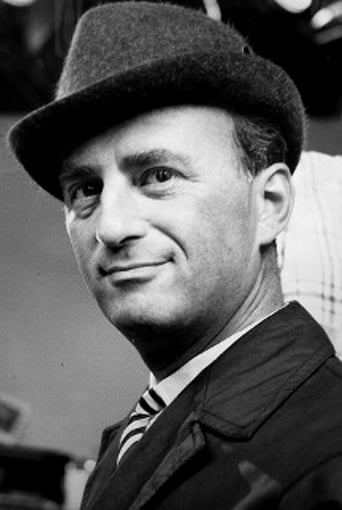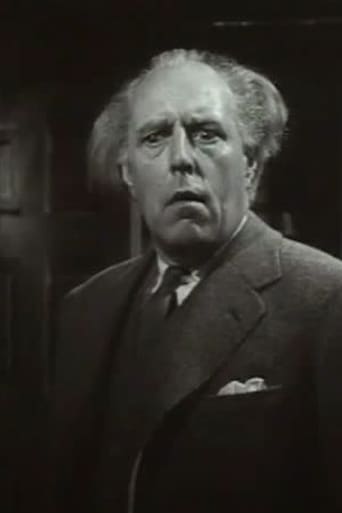ChicRawIdol
A brilliant film that helped define a genre
Micah Lloyd
Excellent characters with emotional depth. My wife, daughter and granddaughter all enjoyed it...and me, too! Very good movie! You won't be disappointed.
Cody
One of the best movies of the year! Incredible from the beginning to the end.
MisterWhiplash
I think that Roger Ebert pinned this work down when he said that adapting the Pinter play would inherently cause some problems - what one can buy as a little more fantastical and hermetically sealed on a stage, where one can be just stuck with these two people on the 'job' with their assignment as Mr. Stanley Webber (Robert Shaw) is a little harder to buy in a film because the reality is different (at least in this case. While I would recommend the film to people, especially for those who want to seek out Friedkin's oeuvre, and it has some terrific performances, it is an exceedingly strange and odd sit.The film is about... well, what is it really? I suppose it's about what happens to a man when he cracks under the weight of pressure and has a nervous breakdown, but that's the sort of main-ultimate point, if there is one. I felt like Pinter was challenging me and the audience, though to what end I am sure I don't know. Of course there is a great deal of suspense - what Shaw knows that the owners of the house don't about these two stranger-boarders (Patrick Magee, who you may recall as the Writer from Clockwork Orange, and Sydney Taffler who is really razor-sharp and wonderfully sadistic as Nat Goldberg) - amid this 'birthday party' which is now really on his birthday.Of course this is what is called 'theater of the absurd'. And to this point there are a few funny moments, but I wouldn't necessarily call it a comedy, at least in Friedkin's hands. Perhaps it's because of the edge of Robert Shaw, who is probably the main reason to watch the film is for his startling performance that keeps an emotional through-line. When he first starts off in the movie he's mad at Dandy Nichols for... something or other (the tea, the corn flakes, the milk, for not, uh, talking to him in a particular way). One almost wonders if he's about to strike her, it's that sort of intense screen persona. But there's a lot more to his character and Shaw conveys this in this big early scene (he's also, I think, an ex-concert pianist or something).You have to be set in the right frame of mind for this movie, and it definitely won't spoon-feed you easy dramatic answers to questions that are posed. By the end I was still not sure who Goldberg and McCann represented (my first thought was they were in some criminal organization - the "job" aspect made me think of a heist, and perhaps that's not that far from the truth by the very end, in a sense). Maybe it's a metaphor for how easily people can crack up, how manipulation and torture are so insidious, especially when pressed hard enough, and meanwhile the mostly happy old Mrs Bowles has her own dimensions too and works as a counterpoint for everyone else (she, along with her husband, has nothing to hide).There's also some dazzling and bizarre camera and lighting choices, though these mostly come in the last couple of reels as the birthday party 'amps up' so to speak, with a camera at one point latched on to a character's head for dizzying perspective and when the lights go out at one point it's... I can't even. The point is, The Birthday Party is a good little find that is Friedkin in love with a piece of material that is bold, difficult and gives himself some chance to take what he learned directing television (I'm not sure if he did live theater but it wouldn't surprise me) into cinema and make it alive and thrashing. Whether it all makes sense is another story.
Roger Burke
Having seen many of Pinter's efforts on screen (The Servant, The Pumpkin Eater, Accident, The Last Tycoon, Sleuth etc) over many years, it was a great pleasure to finally see this early work which entertains and tantalizes in equal measures. From a Pinter-written play first produced in 1958, one of my favorite directors, William Friedkin, briskly directed a handful of brilliant actors in a story which has puzzled viewers and critics for over forty years.Recognizing that every viewer's experience of reality is different, let me describe what I saw and suggest a possible theme: A typical, sea-side boarding house owned by a less-than-middle class, middle-aged couple (Dandy Nichols, Moultrie Kelsall) eking out their daily drudge; a lone, youngish boarder and apparent musician (Robert Shaw) who looks and acts like a rude, lazy bum; and a mysterious pair of men (Patrick Magee, Sydney Tafler) who arrive at the abode to visit the young border and celebrate his birthday.The action - talk-fest is a better word - takes place in the front dining-sitting room over the course of the day, the evening and the next morning. Initially, Stanley (Robert Shaw) is verbally battered and intimidated by Nat (Sydney Tafler) and Shamus (Patrick Magee) with conversation which oscillates from the banal to the insidious; at one point, Stanley even punches Nat. Meanwhile, Meg (Dandy Nichols) goes out food shopping; her husband, Pete (Kelsall) is out at work as beach deck-chair supervisor. Shamus, significantly, has the unsettling habit of tearing a page of newspaper into precisely ordered strips; and then arranging them as a 'page' again. Over and over again....As evening arrives, there is a birthday 'party' of sorts which gradually degenerates into a drunken altercation between the three men, leaving Stanley mentally bowed and beaten - but not physically so. The party includes the infantile game of Blind Man's Bluff, a long toast to Stanley's birthday, binge drinking, and ends with Stanley smashing bottles, glasses and finally screaming for help in the darkness. Fade to black.The next morning, with Meg and Pete out of the house, a fresh-looking Nat, looking every bit The Organization Man - including sleek, smart, black briefcase - discusses Stanley's condition with Shamus while he, once again, proceeds to tear newspaper into orderly shreds. It is during that exchange where we learn the nature of Stanley's problem and why they need to take him away. At which point, Stanley now enters as the New Man after his Birth Day: showered, shaved, and suited up appropriately - looking and acting like a condemned man. As the three prepare to depart, Pete arrives, concerned for Stanley, but is told by Nat to leave it to them to handle it all. As the front door closes, Pete calls out after them: "Stan - don't let them tell you what to do!"Pete goes back to his newspaper reading. Meg returns and, when assured by Pete that Stanley is fine, they simply continue with their new day - thus cementing their implicit acceptance of Stanley's fate. Fade to black.In my view (no pun intended), this play is a metaphor, showing how modern capitalism squeezes the young - including the artistic Stanleys of the world - into a sleazily-suited life of mindless, office sludge. Hence, it could be compared to, say, Patterns (1956) which is all about raw corporate ethics. Or, better still, The Man in the Gray Flannel Suit (1956) - a somewhat less strident critique of modern man's self-made commercial trap which ensnares most into pointless paper-pushing - and the self-destructive consequences thereof. Is there more than just a touch of Pinter in Stanley's dilemma which Pinter wrote when only 28? Perhaps.The acting, direction and cinematography are simply brilliant; as is the dialog, which must be followed closely to enjoy to the fullest. Sure, it's a claustrophobic setting for some viewers, being in one room for most of the time. All the better to concentrate on the characters, surely? Are we not, ourselves, always in one room much of the time, anyway?Highly recommended for all. Nine out of ten.
coxaca
I remember stumbling across this movie on late-night TV many years ago and being utterly enthralled. I was familiar with Robert Shaw, who now rates as one of my favourite character actors - think of his work in "Jaws" and "The Hireling", among others - and I recognised Patrick Magee from Kubrick movies and Dandy Nicols from "Till Death Us Do Part". But I had never heard of Harold Pinter, and I was simply blown away by his script, the acting, and the originality of this movie's overall vision.Of course, "The Birthday Party" is a fairly straight filming of a stage play, and so it lacks many of the unique pleasures of the cinematic experience. But there is still much here to interest lovers of film. There is terrific use of darkness and light, a sparse yet perfectly judged soundtrack, odd angles, close-ups, and highly effective editing and pacing. Everything adds up to create an unparalleled atmosphere of claustrophobia, menace, and dread. I feel this must have been Pinter's intention for the play, and yet that's probably just because Friedkin's interpretation feels so "right" that I can't imagine it any other way -surely an indication that this is a successful realisation of Pinter's drama.I can well imagine why this film would be lost on many. There is nothing solid for the viewer to grasp - no background, no real sense of time or place (well, OK, it's set in a British seaside boarding house), no explanation for the sudden intrusion of the two visitors. And there is virtually no plot, just maddeningly circuitous dialogue which only serves to mystify. Yet this is the whole point. Nothing is really explained, any clues thrown our way turn out to be misleading, we know something sinister and complex is happening yet we remain locked out. Thus do the playwright and his director build in us a sense of foreboding and (to borrow a phrase from Bret Easton Ellis) "nameless dread". There is high drama, momentous and awful things are happening before us, yet we cannot begin to understand the why's and wherefores.Some brilliant touches: the artless snare-drum solo, rising to an insane climax then stopping abruptly (heard at several crucial turning-points in the movie); the newspaper-tearing sequence, so laboured, so pointless, yet perfectly defining the character played by Magee (especially when he snarls "LEAVE THAT!" as Nicols tries to clean up his neatly laid-out strips of torn newsprint); the absurd, unbelievable, yet extraordinarily intense characterisations of the main players. In this respect especially, Sidney Tafler's performance is a revelation.It's quite a unique cinematic experience, highly original, fascinating and menacing in a way I've never seen before or since in a movie. For this reason I hold "The Birthday Party" in very high esteem and wholeheartedly recommend it to anyone interested in experiencing something a little different from any other movie they've watched.
lancaster2778
As one of this world's more zealous Robert Shaw fans, I feel obliged to put this gem in every once in a while and follow Shaw's every move. I must say, this film amazes me; it confounds me every time. There's only one emotion that overwhelms my passion for Mr. Shaw's gift in front of the camera--irritation--and it's aimed right straight at the storyline. You will find yourself wondering what's going on and why, as the actors' performances blind you with their shabby, touching directness. Don't let the story creep and seep too far into your brain. The story will cloud your ability to appreciate what this film is full of--brilliant, golden performances. They all shine, especially Shaw as poor Stanley. I enjoy watching films that take me to England in the 60s. The surroundings are dreary and depressing and totally marvelous. This film is well worth seeing; but, once again, I warn you--ignore the story; adore the actors! Oh, and an extra bonus (for what it is worth)-- After watching this film, you'll never look at a newspaper the same way again, I guarantee you. Enjoy!

